1. We’re at a moment of inflection for democracy—and corruption.
In December, civil society organizations, private sector entities, and government representatives will gather to discuss the state of corruption around the world at the International Anti-Corruption Conference hosted in Washington, DC. Participants will have the opportunity to share lessons learned from the past year and help hold governments accountable to their Summit for Democracy commitments.
Last December, more than 100 jurisdictions were represented at and participated in the first Summit for Democracy. At the event, jurisdictions, including the host—the United States government—submitted formal commitments. Commitments focused on countering authoritarianism, fighting corruption, and promoting human rights. And while these commitments represented important first steps, few countries have publicly reported any evidence of implementation.
Shortly following the first summit, the Biden administration announced a second Summit for Democracy to “take stock of the progress made.” The second Summit for Democracy can serve as a launchpad for broader, more sustainable, and better coordinated efforts. However, to maximize the impact of the second summit, we must examine what countries promised at the first and how—or if—they’ve followed through with those commitments. Otherwise, we risk losing another “year of action.”
2. Commitments to counter corruption are an important start.
While many Summit for Democracy commitments addressed issues of inclusion and civic space, anti-corruption commitments formed a significant subset. Over 40 countries made at least 125 commitments broadly related to anti-corruption. Half of these anti-corruption commitments were relevant to at least one value of open government (transparency, civic participation, or public accountability).
These commitments covered a range of policy areas. Around one-third addressed money in politics, including electoral reforms. For example, Ireland committed to establish an independent Electoral Commission that will work to regulate online political advertising and modernize the electoral registration process. Other commitments dealt with financial crimes and abuses of power, such as whistleblower protection reforms.[1]
Some commitments also focused on the intersection of anti-corruption and democratic freedoms. For example, the Slovak Republic committed to protecting journalists’ independence through transparency of media ownership and regulated political advertising. Similarly, the United States committed to support journalists in their efforts to expose corruption and ill-gotten gains.
3. Commitments must address context-specific challenges.
To be effective, commitments must be designed in consultation with the public to address each country’s specific challenges. New research from the Open Government Partnership (OGP), a multilateral initiative focused on advancing concrete commitments from governments to promote open government and combat corruption, and the Global Data Barometer on the state of open data in OGP countries can help support this effort.
While open data is only one element of financial integrity, it provides a sense of gaps and opportunities for reforms. Below we look at three key areas of financial integrity, the gaps according to the research, and to what extent those gaps were addressed by Summit for Democracy commitments.
Political finance
Political finance transparency is essential to leveling the political playing field and maintaining free and fair electoral competition. In addition, covert foreign finance is one way governments undermine public trust and the bond between voters and their representatives.
- Policy gaps: About one-third of OGP countries do not publish any political finance data online. In addition, most available datasets lack identifying data on donors and are not published according to open data standards.
- Commitment analysis: While many jurisdictions made Summit for Democracy commitments addressing electoral integrity, only six (Kosovo, Liberia, Mauritius, Republic of Moldova, Peru, and Taiwan) specifically focused on political financing.
- Commitment examples: As part of the Summit for Democracy, Liberia committed to transparency and accountability in electoral funding while Moldova committed to increase sanctions and oversight for illegal financing of political parties.
Asset disclosure
Opening data on asset declarations allows the public to work alongside oversight institutions to monitor those entrusted to serve in their interest.
- Policy gaps: All OGP countries require the collection of asset disclosure data, but two in five do not publish the data in any form. Most available datasets include information on income, assets, and liabilities, but do not cover family members. Asset declarations are also typically not machine-readable or bulk-downloadable.
- Commitment analysis: Only four jurisdictions (Kosovo, Montenegro, Slovak Republic, and the United States) made Summit for Democracy commitments that specifically address asset disclosure.
- Commitment example: In their 2020-2022 OGP action plan, Côte d’Ivoire committed to mandate annual asset disclosures, build an online platform for asset disclosure submissions, and publish reliable and up-to-date statistics.
Company beneficial ownership
Disclosing beneficial owners—those who ultimately control or profit from a business—is essential for combating corruption, stemming illicit financial flows, and fighting tax evasion.
- Policy gaps: Two-thirds of OGP countries do not publish any company beneficial ownership data online. Where this data is available, it is typically not machine-readable and lacks important details such as the financial interests held by beneficial owners.
- Commitment analysis: Nine jurisdictions made at least one commitment regarding the disclosure of beneficial owners. Several commitments included pledges to create publicly accessible registries.
- Commitment examples: As part of the Summit for Democracy, Latvia committed to disclose the beneficial owners of joint-stock companies, while Canada committed to implement a publicly accessible beneficial ownership registry by 2025.[2]
4. What’s next?
Moving forward, it’s essential to assess the quality and strength of anti-corruption and other commitments, identify gaps in their implementation, and develop sustainable recommendations for advancing toward quality commitments. Organizations such as Brookings, International IDEA, and OGP are working together to conduct such monitoring and analysis in advance of the second summit and beyond. Civil society from participating countries must be closely integrated into this process. Accordingly, there must be a concerted effort from experts at the global and national levels to ensure visibility of these commitments and engagement from civil society.
The second Summit offers an important platform to take stock of progress toward commitments, but the work of identifying and monitoring reforms cannot stop there. To ensure this effort is sustainable in the months and years to come, civil society organizations and governments must integrate reforms into other vehicles. This could include getting commitments to reform built into vehicles such as OGP and the Financial Action Task Force (FATF)[3] action plans and developing high-level re-commitments at the upcoming OGP Global Summit.
[1] All Summit for Democracy commitments are visualized on International IDEA’s Commitment Dashboard here. They are also available as machine-readable data on OGP’s website here. The original written submissions made by governments can be found on the US State Department’s website here.
[2] In March 2022, the Canadian government pledged to implement the registry by the end of 2023.
[3] The Financial Action Task Force, or FATF, is an intergovernmental organization focused on combating money laundering and the financing of terrorism.
-
Acknowledgements and disclosures
Special thanks to Lilly Blumenthal, Zoe Hatsios, and Ivana Lefebvre d’Argencé for their careful fact-checking work.
The Brookings Institution is committed to quality, independence, and impact.
We are supported by a diverse array of funders. In line with our values and policies, each Brookings publication represents the sole views of its author(s).


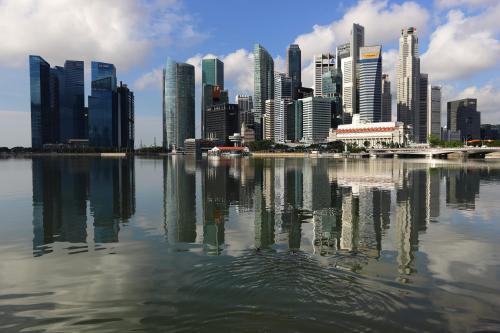
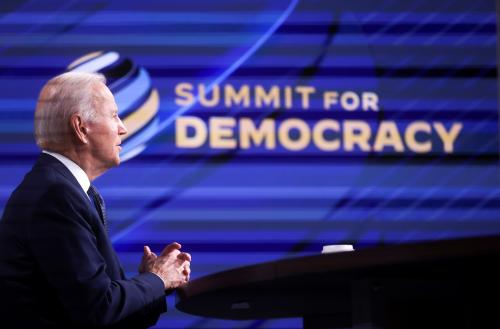
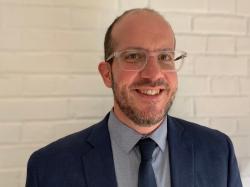




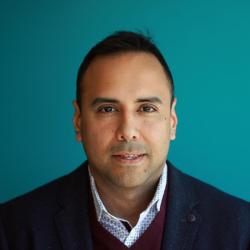


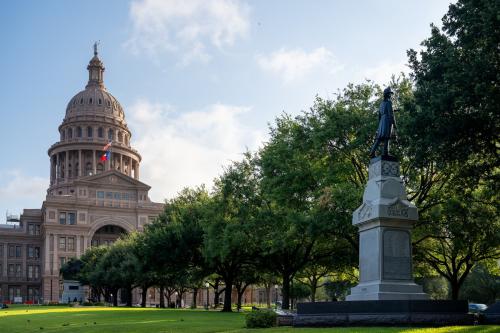
Commentary
Inflection point: Making the Summit for Democracy matter at the IACC
December 2, 2022